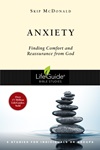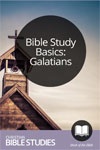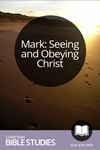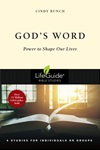Just about everyone has heard the anonymous saying, "Life is not about waiting for the storm to pass, but learning to dance in the rain." I wonder what the original author meant by "dance"? If they meant that we just tell ourselves to be happy or at least pretend to be happy and "look for the silver lining," then I disagree with the saying. But if dance means to have intimacy with God, then I heartily agree.
The last line of Michael Card's song "Underneath the Door" says: "Pain is the pen that writes the songs and they call us forth to dance." Card is calling us to dance to the songs that pain has written for us. These songs are written in major and minor keys. Many times they are not "beautiful," and in fact are quite harsh, but the finished product is a masterpiece.
Learning to Lament
How do we dance to these songs? By being real with God. That's the only way we can truly worship him. God wants all of us—not just our thank-yous and happy I-love-yous, but our anger, frustrations, fears, doubts, and so on. For if we hold anything back from him, we are being dishonest and therefore cannot worship him wholeheartedly.
The way to be intimate with God is through lament, which is more than just being sad. Lament is something many Christians in the West have never heard of, or if they have, most likely it was in a negative context. But at least a third of the Psalms are laments and there is a book of the Bible named "Lamentations." And consider Jesus on the cross. Everyone who was familiar with the Old Testament knew he was quoting Psalm 22 when they heard his anguished cry, "My God, my God, why have you forsaken me?" He also lamented in the Garden of Gethsemane when he begged his Father to remove the cup he was about to drink. It was so intense that he even sweated drops of blood (Luke 22:39-44).
Michael Card says in A Sacred Sorrow Experience Guide,
Many [laments] are poignant, such as David's lament for his friend Jonathan in 2 Samuel 1:19-27. But others are filled with fear (Psalm 55:5), confusion (Psalm 13), or even the blackest hatred (Psalm 109). In fact, the full range of human emotions is to be found in the laments of the Bible.
Paul writes in Philippians 3:10, "I want to know Christ—yes, to know the power of his resurrection and participation in his sufferings, becoming like him in his death" (emphasis mine). Lament is the one way that we can know Christ in the fellowship of his suffering. In the forward of A Sacred Sorrow Experience Guide, Ken Cope writes:
Our traditional view of grief is that it should be reserved for funerals and tragedies. However, if we really want to encounter God and grow in our relationship with Him, then our attitude toward grief must change from viewing it as an uncomfortable and unwanted drop-in visitor to seeing it as a dear and faithful companion that is an integral part of our daily journey with God. It is there to allow us to enter into the heart of Philippians 3:10, which is an invitation to share in the fellowship of His suffering. When we allow ourselves to feel broken and alone, we gain a small measure of understanding of the sacrifice that Christ made for us in going to the cross and being broken for us. Grief draws us to God Himself in ways that could not be accomplished through any other means.
During a discussion I had with my sister, she told me that one reason the church in the West refuses to lament is that it confuses it with grumbling. Through reading Exodus she has been able to see the difference. The whole purpose of lament is to bring us to the point of desiring God's presence.
The children of Israel already had God's presence in the form of a cloud by day and a pillar of fire by night, and yet they complained about food and drink, even saying they would rather be back in Egypt as slaves. They never learned that his presence was and is always enough, and because of this they did not trust God and only saw their current physical needs. God was once again angry with them because he knew they didn't trust or desire him, and for their punishment they would wander in the dessert for 40 years until that generation died. They never saw or enjoyed the Promised Land (Ps. 95:8-11).
What Job Can Teach Us
During a women's retreat this year, our speaker said that when her daughter was a teenager she was diagnosed with cancer and had to have chemotherapy. Her daughter, who is now an adult, sees Job only as someone who complains about his misfortunes. She hasn't gotten to the heart of the Book of Job. Job and those of his time (and our time) believed that those who were good would live a happy life and those who were bad would live a sad and accursed life. God shows them this isn't true.
Job wanted one thing throughout the whole book, and that was an audience with God. Yes, Job wanted God to vindicate him and to answer his questions, but does this sound like a man who was just grumbling about his circumstances?
I know that my redeemer lives,
and that in the end he will stand on the earth.
And after my skin has been destroyed,
yet in my flesh I will see God;
I myself will see him
with my own eyes—I, and not another.
How my heart yearns within me! (Job 19:25-27)
Job indeed does get his audience with God. But instead of answering his questions, God says that his ways are not man's ways and that Job cannot begin to understand. In awe of God, Job says: "I know that you can do all things; no purpose of yours can be thwarted …. My ears had heard of you but now my eyes have seen you" (Job 42:2, 5).
The Difference Between Grumbling and Lament
When we grumble, we focus on ourselves and see only our physical needs. We don't want God's presence. Lament is, and always will be, about us being real with God, giving him all our emotions—happy, sad, angry, and so on. And in the process of being real, we desire one thing: God's intimate presence.
All of us have a choice: we can grumble, we can pretend and wear masks, or we can be real. Being real staves off the temptation to grumble and gives us the freedom to take off our masks, seek God's presence, and dance to the songs pain has written for each of us.
Janelle R. Wangle is a poet and a prose freelance writer. Her sister Jayleen helps edit and refine her work.
Copyright © 2012 by Christianity Today/ChristianBibleStudies.com. Click here for reprint information.












